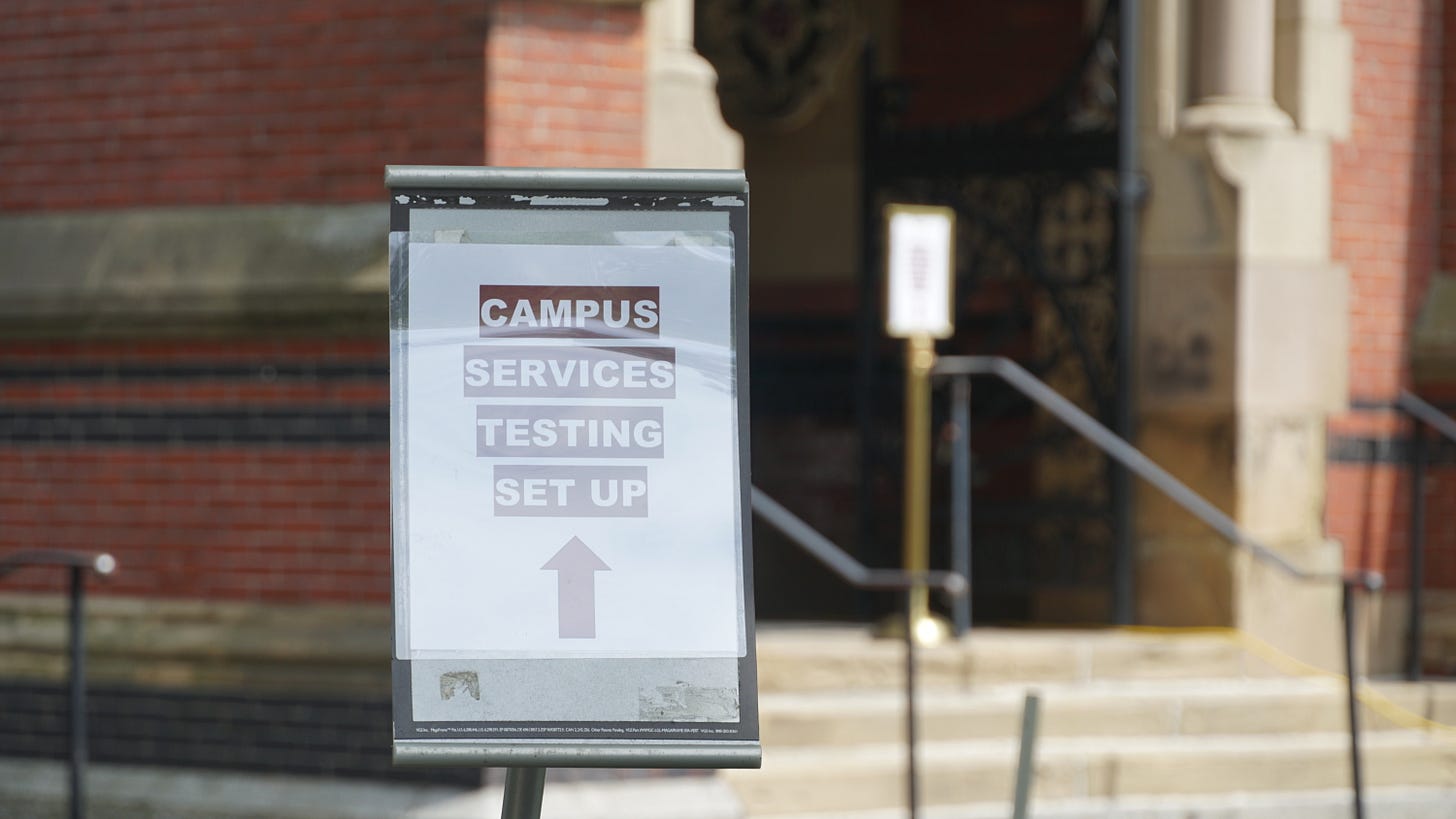Why Fighting Outbreaks Requires a Community Response
The Crimson spoke to Dr. Pardis Sabeti about her career, Harvard’s plan, and how dysfunction causes some societies to deal with outbreaks poorly.

Photo By Zadoc I.N. Gee
By Ema R. Schumer, Crimson Staff Writer
When Harvard administrators first began mulling reopening this fall, they set up eleven committees with tasks varying from curricular review to plotting how the pandemic would affect the University’s long-term outlook. One of those groups — perhaps the one which has had the most immediate impact on campus — focused on testing and tracing. It determined the system Harvard eventually put in place: testing three times a week for students in residence, testing once a week for other affiliates, and a robust contract tracing system that relies in part on Wi-Fi signals.
For at least one member of that committee, Organismic and Evolutionary Biology professor Pardis C. Sabeti, dealing with a pandemic is not a new experience. In 2014, Sabeti was part of a team that identified the point of transmission that caused the Ebola outbreak.
The Crimson spoke to Sabeti about her career, Harvard’s plan, and how dysfunction causes some societies to deal with outbreaks poorly.
The Harvard Crimson: What was your involvement in Harvard's reopening plan?
Pardis Sabeti: I am part of Harvard University's track and trace committee, where I help think through policy on diagnostics as well as technologies to rapidly share information.
THC: Time Magazine recognized front line medical workers fighting the Ebola crisis — including you — in 2014. What did you learn from that experience that you have harnessed to effectively combat the current public health crisis we are facing?
PS: Many lessons I and others have discussed in previous pandemics are now widely understood, namely the importance of detecting outbreaks, through track-and-trace methods, before they have the chance to spread widely. From my experience on the frontlines of the Ebola epidemic, I have also learned how much our human behaviors become a part of the problem – this led me to write a book alongside Journalist Lara Salahi, entitled Outbreak Culture. This book used analysis and interviews to detail how the combination of humans working closely together through politics and science, combined with an insidious and deadly threat, and on top of a number of perverse incentives for groups to exploit vulnerabilities caused by an outbreak, create a crucible of dysfunction, paranoia, and fear. In our book, we argue that a dysfunctional “outbreak culture” poses a great threat to our ability to curb outbreaks and save lives, and that we must continually watch for and dismantle toxic response systems where possible. I think people are still just beginning to understand the gravity of outbreak culture and how it is operating amidst COVID.
THC: What is your reaction to outbreaks of cases on college campuses where students have returned in recent weeks? What, if anything, has Harvard done differently than those colleges in making preparations to have students return?
PS: Outbreaks on college campuses are to be expected, and we have known how challenging of a feat it will be to return students to campus. I advocate that you cannot simply think about outbreak response in terms of a select number of individuals within an environment – to bring a community back, you must care for the entire community, as everyone is interconnected. As an academic community, we are only as protected as our most vulnerable, and we must strive to bring Harvard's staff, and their families, local businesses, etc. into the conversation when we talk about campus preparedness.
THC: What do you believe a successful and realistic Harvard reopening would look like? Given your definition, what role can individual Harvard affiliates play to help the University succeed in this endeavour?
PS: A successful and realistic Harvard reopening would take regular surveillance measures and amplify its impact with rigorous, hypothesis-driven testing in the community. This would ensure that any symptomatic individual and their contacts, not only in the student population but in the Harvard area, would be cared for, with each person playing their part to support their community. This is a moment in time where students, faculty, and staff could work together and create a richer educational experience in the process.
This Week’s Top Stories
The Crimson's Freshman Survey: Meet the Class of 2024
By THE CRIMSON NEWS STAFF
Shut Out of Campus Dorms, Harvard Students Flock to Boston and Cambridge Rentals



